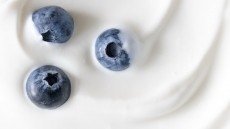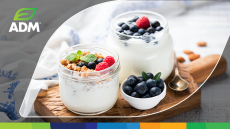DSM targets soft-cheese culture development
DSM says that its Delvo-Tec TS-70 cultures have been designed to provide specific acidification profiles for the mass production of cheeses like brie or camembert, ahead of further potential developments for use in other products like cottage cheeses and even yoghurts.
Kris Ferguson, product manager for DSM’s cultures division, told DairyReporter.com that softer cheeses, particularly when made in larger amounts, were prone to product variation.
He added that its latest development had been designed primarily in response to larger-scale manufacturers looking for new methods of ensuring consistency between batches.
Acidification aim
The Streptococcus thermophilus strains have been designed to produce high levels of acid during processing, which then slows rapidly when exposed to lower temperatures, according to the company. DSM claims that the products can ensure greater control over curd formulation for a consistent texture in the cheese.
“The cultures produce the right amount of acids at the right time,” stated Ferguson. “This focus on acidification also allows us to reduce product wastage.”
Phage focus
According to the company, like its other products in the TS range, the latest culture developments are also unrelated to existing commercially available strains.
Ferguson says that ensuring strains are not related is vital to prevent the development of phage that can killbacteria quickly, possibly slowing the production process down. This is a constant threat for companies searching for cultures all over the world, he added.
With the latest product extension, DSM says that it has entered the two key markets for thermaphilic cultures, though Ferguson did not rule out further developments in the future, such as cottage cheeses or even yoghurts.
“There is quite an open area for development,” he stated. “We will move to respond to customers requirements for product stabilisation.”
Cost considerations
In terms of the price for adopting the cultures, DSM says that the cost is competitive for the industry, with the potential improvement in cheese yields allowing great efficiency for manufacturers.
As part of its rollout strategy, the company said that it was targeting a launch in the main European markets for soft cheeses, namely France and Germany, before becoming available worldwide from next year.











